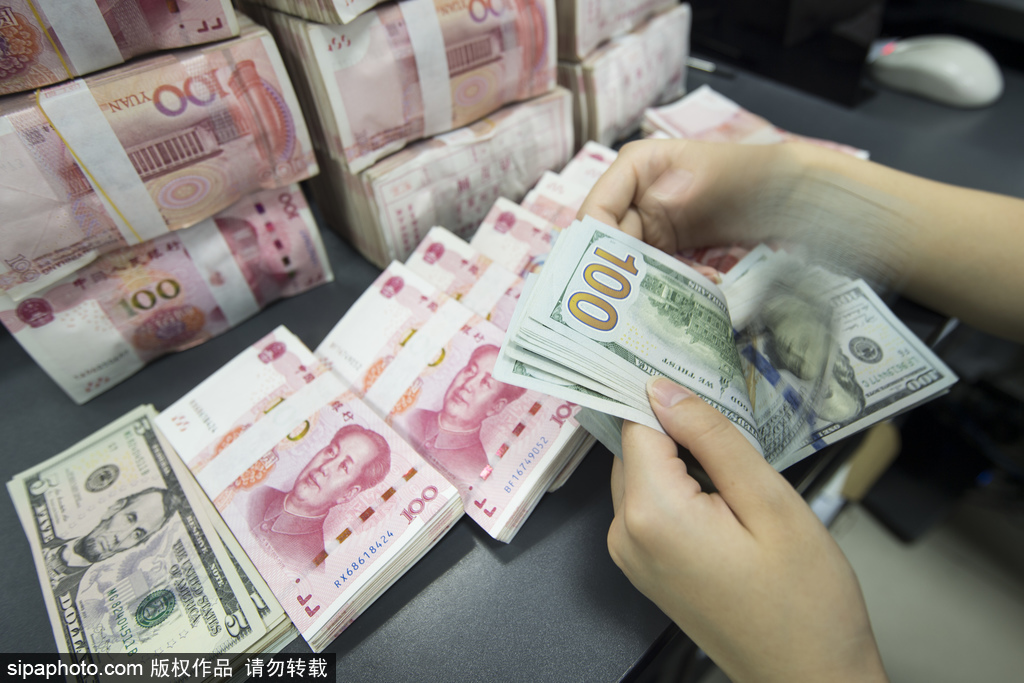Slashed US debt holdings change scene
By ZHOU LANXU | China Daily | Updated: 2022-07-21 07:42

More dollar liquidity to keep financial stability, diversify forex reserves
China's trimmed US debt holdings can help the nation gain more dollar liquidity to maintain financial stability and reduce its reliance on dollar reserves, economists and experts said on Wednesday.
Noting that China is the second-biggest foreign holder of US Treasuries, they said the falling foreign holdings of US Treasuries reflect dampening investor confidence in dollar-denominated assets due to radical monetary tightening and elevated inflation in the United States.
Their comments followed data from the US Treasury Department that China's holdings in US Treasury securities had decreased for six consecutive months to $980.8 billion as at the end of May, down from $1.0034 trillion in April and dropping below the $1 trillion mark for the first time in 12 years.
The decline in China's holdings came as part of the global trend of trimming holdings of US debt. Total foreign holdings of US Treasury securities stood at $7.4216 trillion as at the end of May, down from $7.4553 trillion in April and marking the lowest level since May 2021.
Japan, the leading holder of US debt, held $1.2128 trillion in US Treasury securities as at the end of May, the third straight month of decline and compared with $1.2185 trillion in April.
Experts said foreign investors have cut US Treasury holdings mainly to shun losses caused by the potential bond price drops due to the US Federal Reserve's ongoing interest rate hikes to tame inflation running at a 40-year high.
Zhang Liqing, director of the Center for International Finance Studies, which is part of the Central University of Finance and Economics, said yields on US Treasuries rise when the Fed raises interest rates. As bond prices move in the opposite direction of yields, this process would also mean lower bond prices, which would inflict losses on investors who sell the bonds ahead of maturity.
With the Fed having raised interest rates by 150 basis points this year to a range between 1.5 percent and 1.75 percent, the yield on 10-year US Treasury bonds has risen to about 3.01 percent as of Tuesday, significantly higher than 1.52 percent seen at the end of last year, market tracker Wind Info said.
Experts said they expect another hike of 75 basis points next week as the US Consumer Price Index, a main gauge of inflation, rose by 9.1 percent year-on-year in June, the largest increase since 1981.
Andrew McCaffery, global chief investment officer of Fidelity International, said the falling US Treasuries holdings by foreign central banks reflect concerns about the real returns, which subtract the level of inflation, provided by US Treasuries.
"Real (US Treasury) yields have been very negative, which has been offset by a strong dollar. But there are concerns that this is not sustainable," McCaffery said.
Shao Yu, chief economist at Orient Securities, said the falling foreign holdings of US Treasuries have pointed to investors' growing concerns over debt risks in the US and the credibility of the US government.
Apart from reducing potential market losses, China's reduction of US debt holdings can help it to improve dollar liquidity, maintain the stability of the foreign exchange market and alleviate the country's reliance on dollar-denominated assets for foreign exchange reserves, Zhang said.
While radical tightening in the US has ignited worries among investors, China has adhered to a stable monetary policy.
Addressing the Special Virtual Dialogue with Global Business Leaders on Tuesday, held by the World Economic Forum, Premier Li Keqiang said China will keep its macroeconomic policy reasonable and appropriate.
The country will not roll out super large stimulus and excessively boost money supply to achieve an overly high growth target, Li said.
With the current monetary policy staying prudent, China's latest benchmark lending rates unveiled on Wednesday have remained unchanged.
The one-year loan prime rate, a market-based benchmark lending rate, came in at 3.7 percent, unchanged from the previous month. The over-five-year LPR, on which lenders base their mortgage rates, also remained unchanged from the previous reading of 4.45 percent.
zhoulanxv@chinadaily.com.cn
























